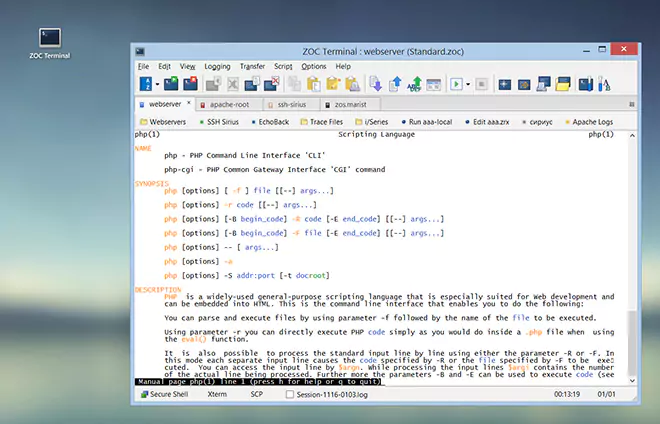Host Directory → Importing other Host Directories
| Import from other Terminal Emulators |
ZOC is able to read and convert host directories of a few popular comm packages (like Putty, Telix for DOS and Windows, Telemate for DOS and Windows, etc.). To do this, select the type of host directory, the section of the ZOC host directory to which you want to import the entries and the file to import. Then press the OK button.
| CSV/Text Import |
To import host directory record from a different format (database or spreadsheet), you need to create a text file which is suitable for CSV/Text import. The text file needs to have one entry per line with columns separated by a specific character (e.g. comma, semicolon, vertical bar, etc.). Most database or spreadsheet software is able to export a file in CSV format, which should be suitable for text import. The file needs to contain at least columns for the Name/Label field and for the Connect to field with optional columns for username, password and port in any order.
Example:
Router 1;192.168.1.1;Markus;asdfg77
Router 2;192.168.2.1;Tom;qwert88
Router 3;192.168.3.1;Kate;uiop99
| Custom Imports |
If you have data which goes beyond what the import functions are offering, you can also create a file in ZOC's own format. The ZOC host directory (HostDirectory.zhd inside the ZOC data folder accessible from the File menu) is a plain text file. Using a scripting language like Visual Basic, Perl, REXX, it should be possible to create entries in that format you see inside the host directory file without too much trouble.
| Post Import Adjustment |
If you want to adjust multiple entries after import, you can mark multiple records in the host directory and click Edit to modify them in one operation. This can be useful to change a settings in all of them to the same value, e.g. setting them all to Xterm emulation, etc.
← Back to Host Directory

